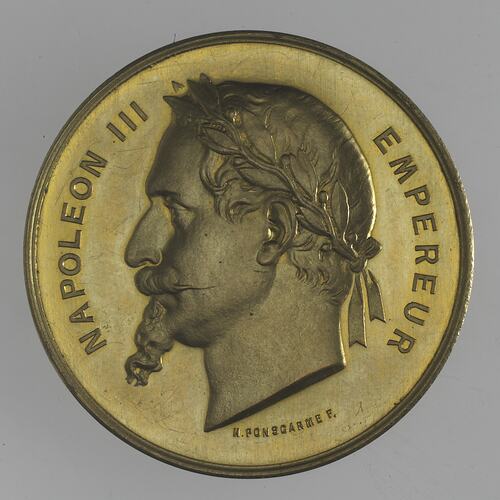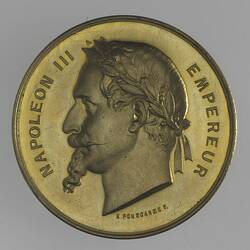Sir Redmond Barry is best remembered for his remarkable influence on the cultural life of Victoria through his role as founder of both the University of Melbourne and the Melbourne Public Library, now the State Library of Victoria. He also founded or helped to found the Athenaeum, the Melbourne Club, the Philharmonic Society, the Royal Society of Victoria and the Melbourne Hospital.
Barry is also remembered as the judge who sentenced Ned Kelly to death, as well as the convicts accused of murdering the inspector-general of penal establishments, John Grice. Conversely, he acquitted the Eureka rebels and supported the Discharged Prisoners' Aid Society. He was also a lifelong defender of Aborigines, rarely taking payment for working on their cases.
Barry was born in 1813 into a privileged family in Ireland, one of the Anglo-Irish colonisers of Ireland. The family lived on the rents of their tenant farmers. One of six sons, he and his brothers were expected to take up soldiering, and at the age of nine he was sent to a boarding school in Cork, then a school in Kent, that would prepare him for life in the British Army. Barry was naturally scholarly, and on his return home he decided to pursue law. He enrolled at Trinity College, Dublin, and subsequently was accepted into a Dublin law firm. He was physically active and socially popular, but his income was poor in the crowded Irish Bar, and when his father died in 1838 emigration became his most viable option.
Barry arrived in Sydney in 1839 and was admitted to the New South Wales Bar in October. Unfortunatly an shipboard affair with a married passenger damaged his prospects of employment in Sydney, and he soon moved to Melbourne. He was soon practising law, and became the unofficial standing counsel for Aborigines. Barry concurrently developed his own practice, and by 1851 was sufficiently well-respected to be appointed Victoria's first solicitor-general. He quickly moved on to the bench of the new Supreme Court.
Throughout his life in Melbourne Barry was prominent in every aspect of social, cultural and philanthropic activity. He supported Irish famine relief and the construction of both Catholic and Protestant churches. As founder and first chancellor of the University, Barry was a diligent administrator and a hospitable host. He assumed a hands-on role in the Public Library as well, visiting it almost daily, drafting correspondence and selecting its books. Even before the Library was founded he welcomed people to his house to read his book collection.
Barry was also President of Commissioners for the 1866 exhibition which was the precursor of the 1867 Universal Exhibition in Paris, he also initiated the Vocabulary of Dialects Spoken by Aboriginal Natives of Australia as part of the 1866 exhibition.
Barry never married, but maintained a long-term relationship with the mother of his four children, Louisa Barrow. She was of lower social status and education, and the relationship earned him some public criticism. He maintained a separate house for her from 1846 until his death. The entire family often appeared together in public and Louisa Barrow is buried beside him. Barry died at the age of 67, only 12 days after the execution of Ned Kelly.
References:
Galbally, Ann, (1995). Redmond Barry: An Anglo-Irish Australian, Melbourne University Press.
University of Melbourne sesquicentenary website http://www.unimelb.edu.au/150/150people/barry.html
More Information
-
Keywords
-
Localities
-
Authors
-
Article types

